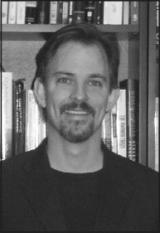Study Shows Professors More Religious than Public Assumes
Study Shows Professors More Religious than Public Assumes
 A professor from George Mason and one from Harvard teamed up to conduct a study that is attracting national attention because its results contradict popular views about the religiousness of university professors. Solon Simmons of Mason’s Institute for Conflict Analysis and Resolution, and Neil Gross, assistant professor of sociology at Harvard, surveyed 1,471 college educators from across the country, from community colleges to elite universities, to find out how often they attend religious services. All types of schools were represented, and professors from 1,060 schools were involved.
A professor from George Mason and one from Harvard teamed up to conduct a study that is attracting national attention because its results contradict popular views about the religiousness of university professors. Solon Simmons of Mason’s Institute for Conflict Analysis and Resolution, and Neil Gross, assistant professor of sociology at Harvard, surveyed 1,471 college educators from across the country, from community colleges to elite universities, to find out how often they attend religious services. All types of schools were represented, and professors from 1,060 schools were involved.
Simmons says about 51 percent of professors responded to their study, which he calls a good success rate. Simmons says they also went back and contacted 100 professors who did not respond to the survey and found their religious beliefs and attendance were similar to those who did respond.
Simmons says professors, all of whom teach undergraduates, were surveyed from four types of schools: elite, top-50 schools; other top schools that award doctoral degrees; intermediate tier colleges; and community colleges. Simmons notes that community college professors are rarely surveyed in similar studies.
One conclusion from the study, says Simmons, is that the academy “is not so Godless after all.” Simmons says that since the university is seen by many outside the academy as a battleground “for hearts and minds,” those who are not employed by the academy still have a personal interest in what takes place in the university classroom.
While the study showed professors are less religious than the general public, Simmons says college educators are more religious than many people may have assumed. Professors are almost as likely to attend religious services as are members of the general population. While 48.6 percent of the people reported attending religious services at least once a week in a respected national survey, the proportion was 39.9 percent for professors on an identically worded question.
Of those professors who did attend religious services, most by far went to Christian churches of one kind or another. For example, the single largest group of attendees were Roman Catholic, representing just under 24 percent of all those who did attend services regularly.
One of the findings was that 36.6 percent of professors at “elite institutions” consider themselves atheists or agnostics, compared to 23.4 percent of professors across the country.
“A lot of Christian groups have latched onto this study,” says Simmons, who joined the Mason faculty this year. “This project was not necessarily a study of religion and professors, but instead a study of ideological diversity in the academy. “The original purpose for this was to be the basis of a symposium to be held at Harvard to discuss political and ideological diversity in the academy. That is still coming. We have not set a date yet.”
Meanwhile, the results of the project were published in articles in Inside Higher Education and the Chronicle of Higher Education. The Associated Press reported on the study, and that led to stories being published in newspapers from Kentucky to Oregon to Utah. “The AP seems to be the big break. When it broke there, it was all over the place,” says Simmons.
Gross was interviewed by a newspaper in Texas. And both of them were interviewed last Friday by a Christian radio ministry that has about 400 to 600 affiliated stations, says Simmons.
As for his personal views, Simmons says, “I don’t have a stake in this study. We really don’t have an ax to grind.” Simmons and Gross attended graduate school together at the University of Wisconsin, where Simmons earned his PhD before joining Mason.
“Conservative critics of higher education paint the academy as a bastion of atheism,” Gross wrote in an e-mail to The Harvard Crimson. “There are indeed more atheists in the professorate than in the general population, but many professors are people of faith.”



